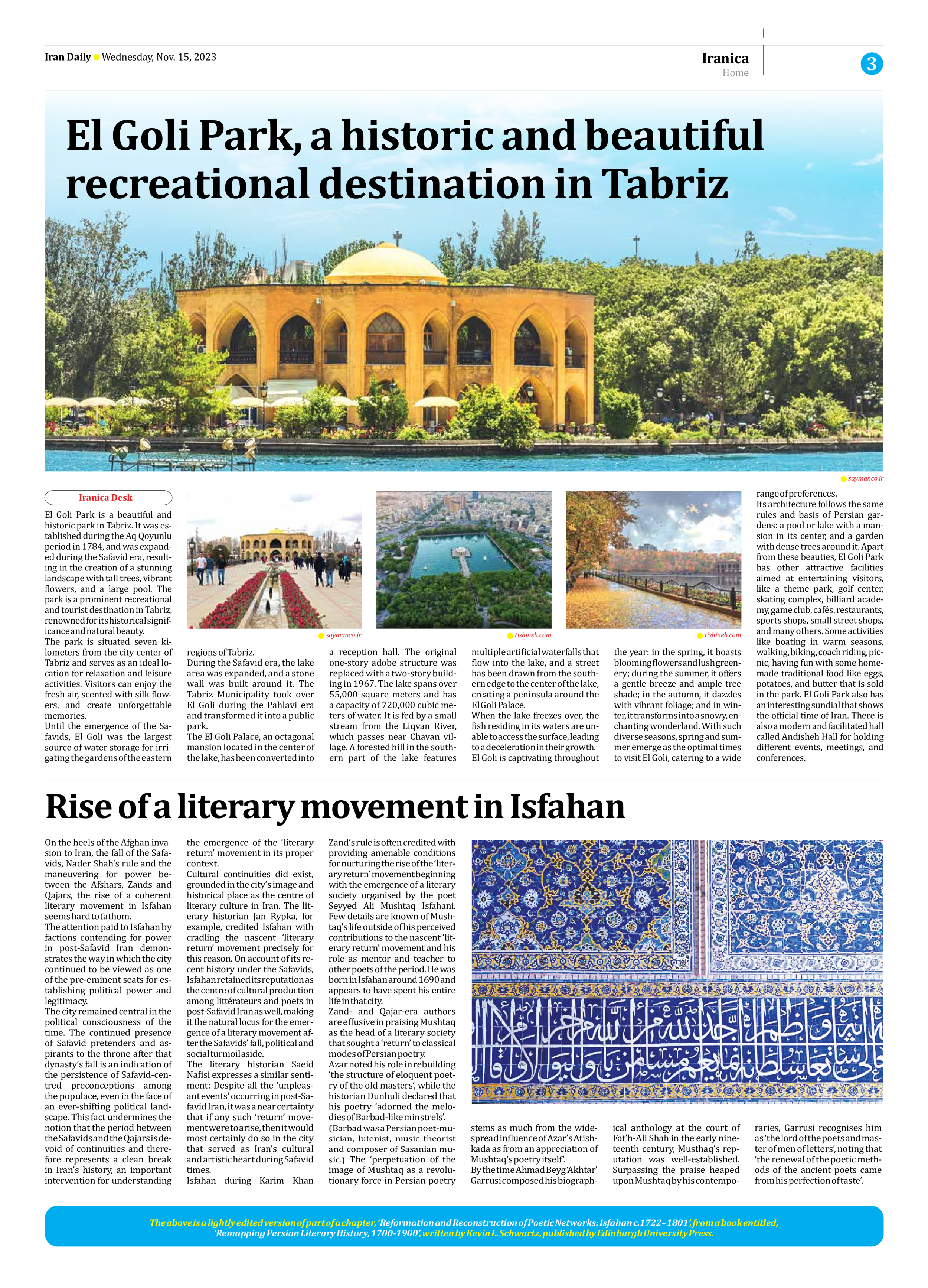
Rise of a literary movement in Isfahan
On the heels of the Afghan invasion to Iran, the fall of the Safavids, Nader Shah’s rule and the maneuvering for power between the Afshars, Zands and Qajars, the rise of a coherent literary movement in Isfahan seems hard to fathom.
The attention paid to Isfahan by factions contending for power in post-Safavid Iran demonstrates the way in which the city continued to be viewed as one of the pre-eminent seats for establishing political power and legitimacy.
The city remained central in the political consciousness of the time. The continued presence of Safavid pretenders and aspirants to the throne after that dynasty’s fall is an indication of the persistence of Safavid-centred preconceptions among the populace, even in the face of an ever-shifting political landscape. This fact undermines the notion that the period between the Safavids and the Qajars is devoid of continuities and therefore represents a clean break in Iran’s history, an important intervention for understanding the emergence of the ‘literary return’ movement in its proper context.
Cultural continuities did exist, grounded in the city’s image and historical place as the centre of literary culture in Iran. The literary historian Jan Rypka, for example, credited Isfahan with cradling the nascent ‘literary return’ movement precisely for this reason. On account of its recent history under the Safavids, Isfahan retained its reputation as the centre of cultural production among littérateurs and poets in post-Safavid Iran as well, making it the natural locus for the emergence of a literary movement after the Safavids’ fall, political and social turmoil aside.
The literary historian Saeid Nafisi expresses a similar sentiment: Despite all the ‘unpleasant events’ occurring in post-Safavid Iran, it was a near certainty that if any such ‘return’ movement were to arise, then it would most certainly do so in the city that served as Iran’s cultural and artistic heart during Safavid times.
Isfahan during Karim Khan Zand’s rule is often credited with providing amenable conditions for nurturing the rise of the ‘literary return’ movement beginning with the emergence of a literary society organised by the poet Seyyed Ali Mushtaq Isfahani. Few details are known of Mushtaq’s life outside of his perceived contributions to the nascent ‘literary return’ movement and his role as mentor and teacher to other poets of the period. He was born in Isfahan around 1690 and appears to have spent his entire life in that city.
Zand- and Qajar-era authors are effusive in praising Mushtaq as the head of a literary society that sought a ‘return’ to classical modes of Persian poetry.
Azar noted his role in rebuilding ‘the structure of eloquent poetry of the old masters’, while the historian Dunbuli declared that his poetry ‘adorned the melodies of Barbad-like minstrels’.
(Barbad was a Persian poet-musician, lutenist, music theorist and composer of Sasanian music.) The ‘perpetuation of the image of Mushtaq as a revolutionary force in Persian poetry stems as much from the widespread influence of Azar’s Atishkada as from an appreciation of Mushtaq’s poetry itself’.
By the time Ahmad Beyg ‘Akhtar’ Garrusi composed his biographical anthology at the court of Fat’h-Ali Shah in the early nineteenth century, Musthaq’s reputation was well-established. Surpassing the praise heaped upon Mushtaq by his contemporaries, Garrusi recognises him as ‘the lord of the poets and master of men of letters’, noting that ‘the renewal of the poetic methods of the ancient poets came from his perfection of taste’.
The above is a lightly edited version of part of a chapter, ‘Reformation and Reconstruction of Poetic Networks: Isfahan c.1722–1801’, from a book entitled,
‘Remapping Persian Literary History, 1700-1900’, written by Kevin L. Schwartz, published by Edinburgh University Press.







